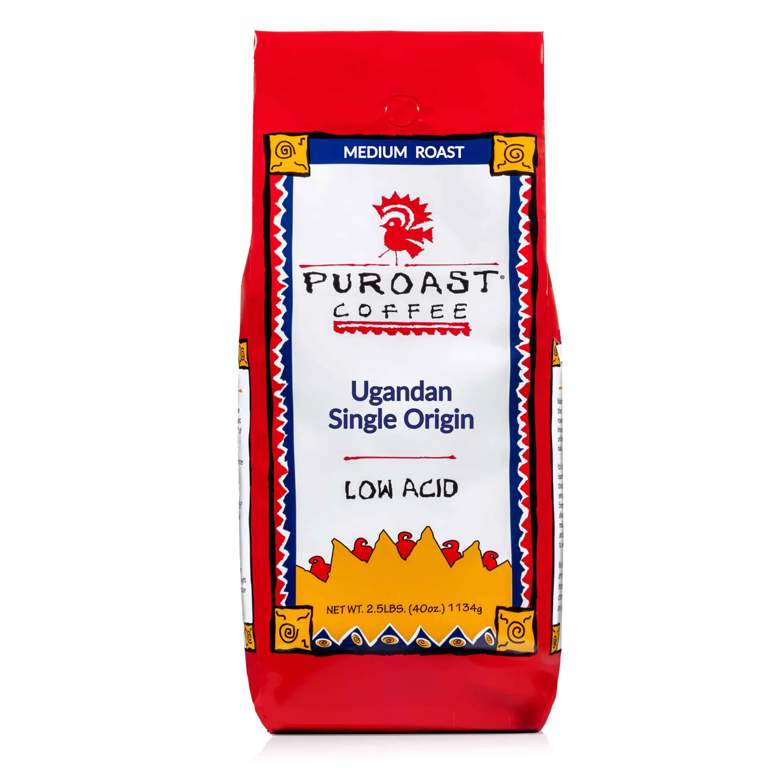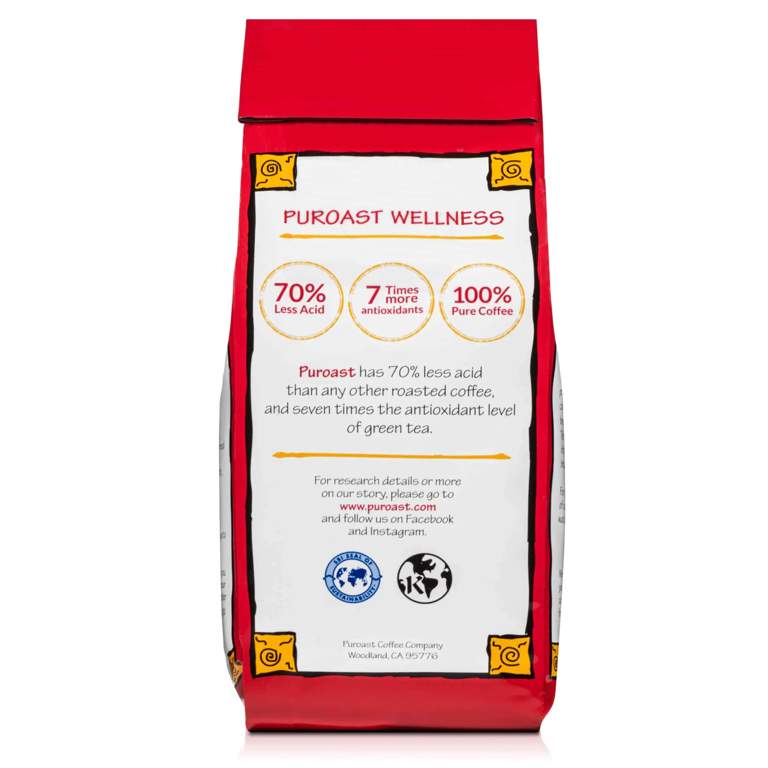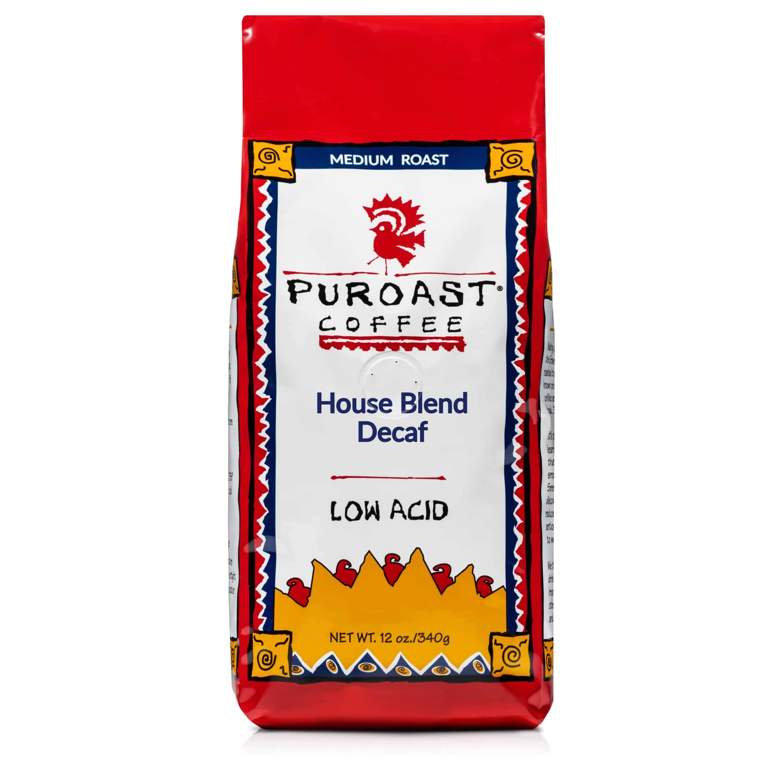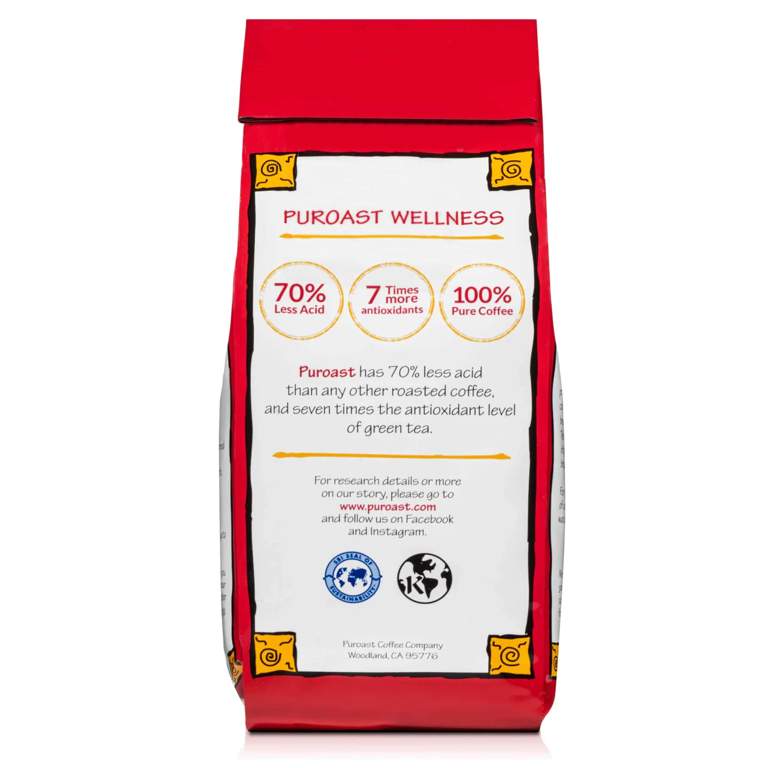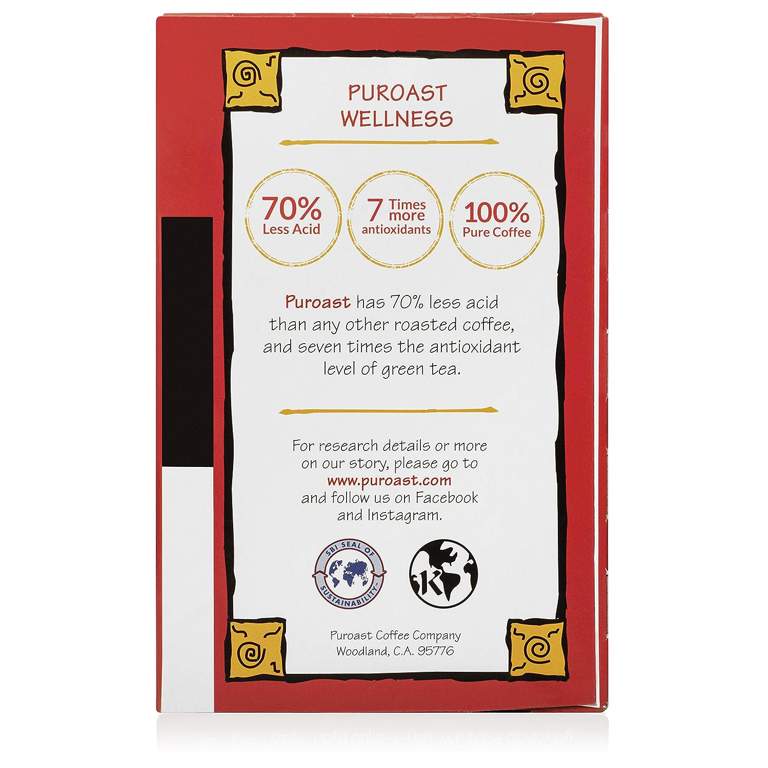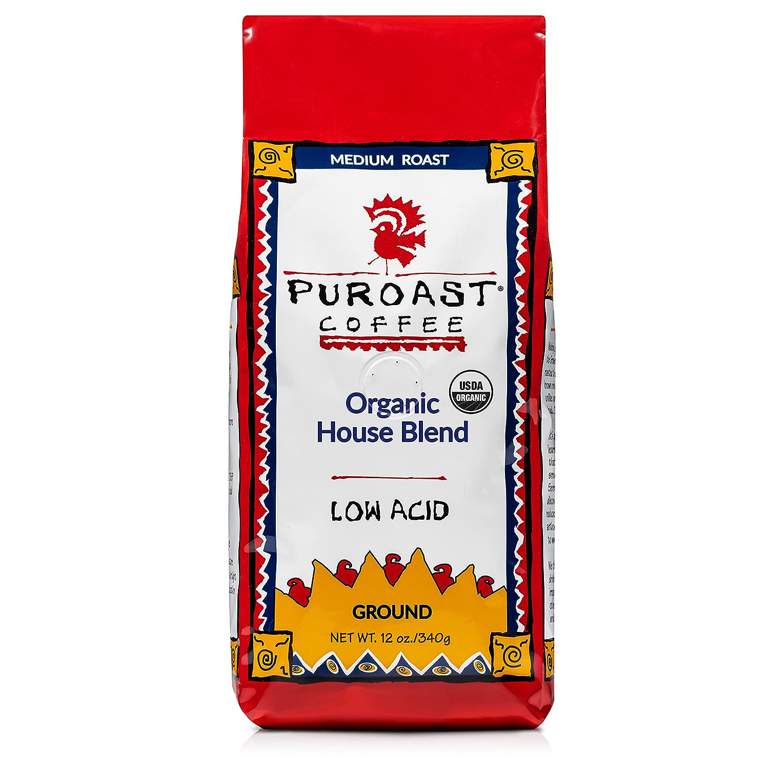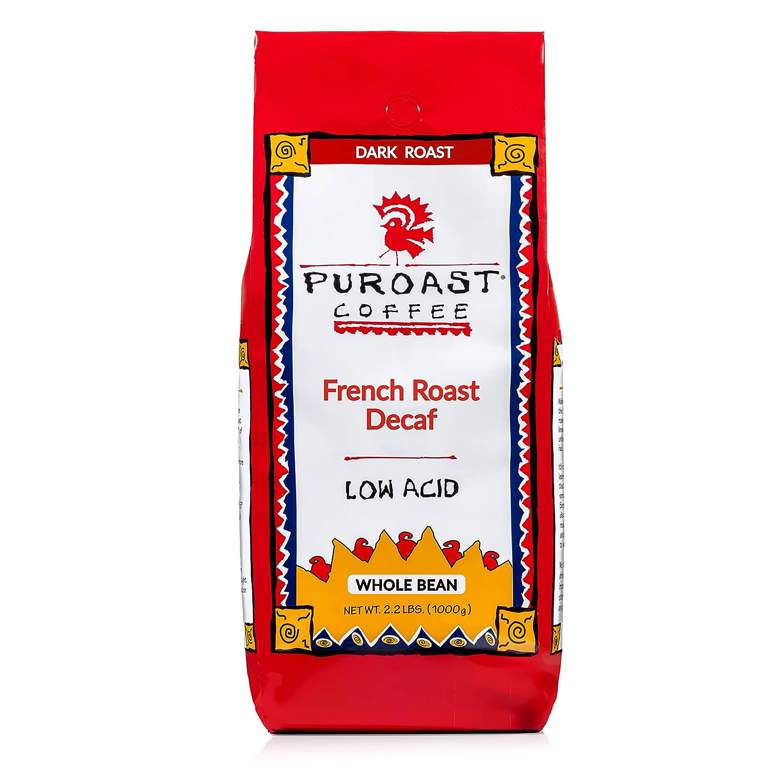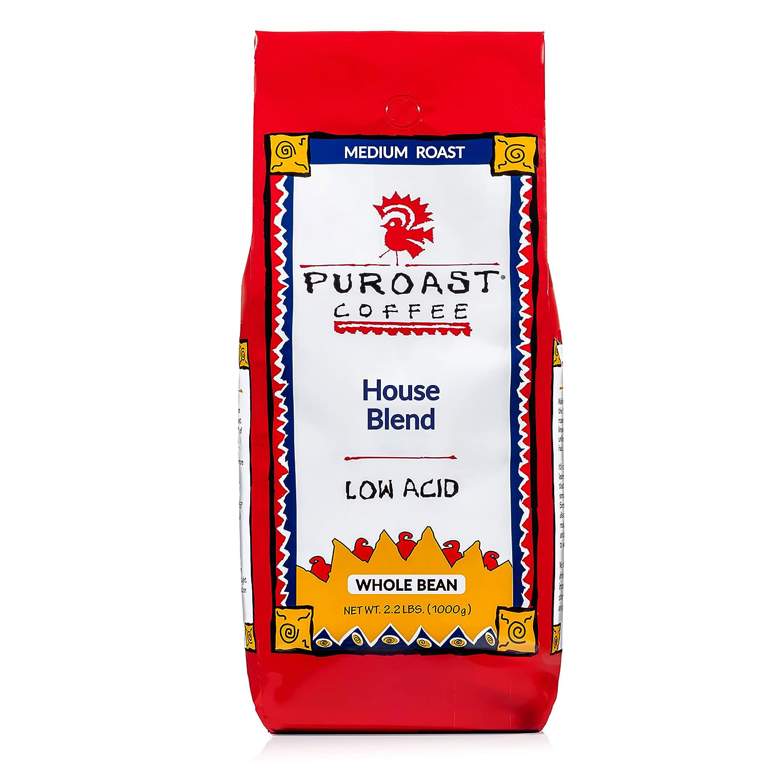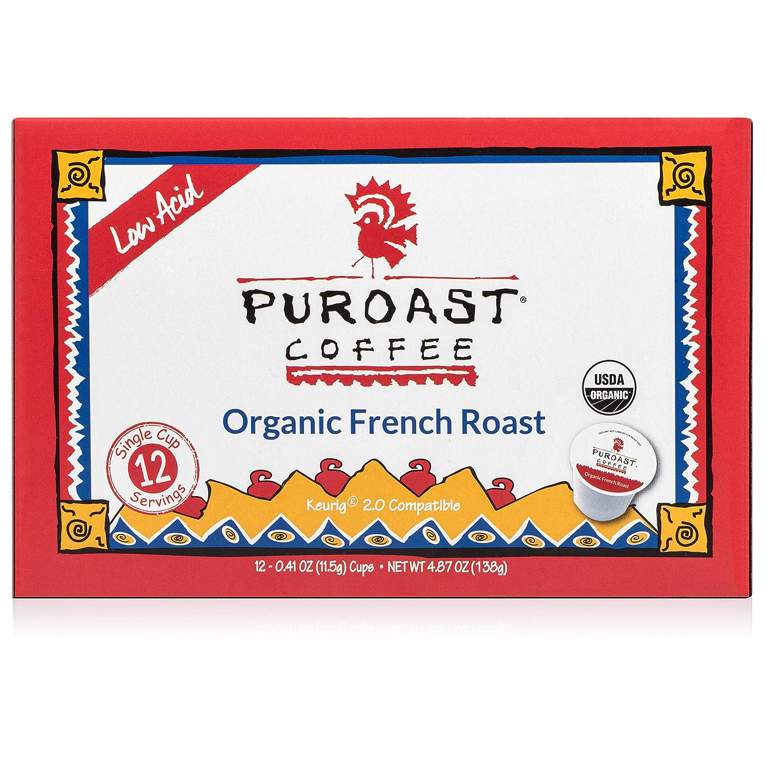Bestsellers for Low Acid Coffee
What are Antioxidants and How Do They Work?

Antioxidants are essential for keeping our bodies healthy. These special compounds, both naturally occurring and produced within our bodies, play a crucial role in protecting our cells and DNA from the damaging effects of free radicals. Free radicals are unstable molecules that can cause havoc by attacking our cells, proteins, and DNA. The consequences of this damage can lead to oxidative stress, which is associated with chronic diseases like cancer and heart disease.
By neutralizing free radicals, antioxidants act as our first line of defense against these destructive forces. Their ability to counteract the harmful effects of free radicals helps prevent cell damage and reduce the risk of developing chronic diseases. Moreover, antioxidants also possess anti-inflammatory properties, which are beneficial in many disease conditions. Inflammation is often a common thread in various diseases, and antioxidants can help alleviate inflammation and contribute to overall health.
In addition to their role in disease prevention, antioxidants also have a positive impact on our skin's health and appearance. Exposure to UV rays and environmental pollutants can cause significant damage to our skin cells, leading to premature aging, sunspots, and other skin problems. Antioxidants shield our skin cells from these harmful factors, potentially resulting in more youthful and healthier-looking skin.
Furthermore, certain antioxidants, such as vitamin C and vitamin E, provide support to our immune system. A robust immune system is crucial for warding off infections and illnesses. These antioxidants enhance the functioning of our immune cells, enabling them to be more effective in fighting against bacteria and viruses.
Antioxidants play an indispensable role in maintaining optimal health. They protect our cells and DNA from free radicals, reduce inflammation, contribute to youthful skin, and strengthen our immune system. By including antioxidant-rich foods in our diet and adopting a healthy lifestyle, we can ensure that our bodies receive the necessary support for long-term well-being.
The Antioxidant Power of Low-Acid Coffee

Incorporating antioxidant-rich foods into your diet is an effective method to increase your antioxidant levels. It is worth noting that various food groups, such as vegetables, beans, fruits, and beverages, are abundant in antioxidants. Surprisingly, beverages like juices, tea, and coffee contribute significantly to our antioxidant intake. Specifically, low-acid coffee brands like Puroast are a notable source of antioxidants. The roasting process of Puroast coffee converts chlorogenic acids into phenols (flavonols), reducing the acidity and bitterness of the beverage. Not only does Puroast coffee have academic research support for its 7 times higher antioxidant content compared to green tea and more impressively, 5.4 times higher antioxidant content than other leading coffee brands, but it also naturally produces low acid coffee that is stomach-friendly while preserving its delicious taste.
To incorporate low-acid coffee into your lifestyle effectively:
Choose brands that prioritize low-acid production methods.
Look for options with proven high antioxidant content through independent research.
Consider how different roast profiles might align with personal taste preferences while still offering reduced acidity.
By making informed choices about the type of coffee consumed, one can enhance overall well-being—one cup at a time—with minimal impact on gastrointestinal comfort and maximum retention of antioxidants' protective effects against free radicals.
Top Antioxidant-Rich Foods to Pair with Your Coffee

Antioxidants are not only crucial for combating oxidative stress but also play a role in preventing chronic diseases. While coffee is an excellent source, diversifying antioxidant intake is important for overall nutrition.
Here are some top anti-oxidant rich food choices to consider:
Berries: Strawberries, blueberries, and raspberries offer a sweet burst of flavor and are packed with vitamins.
Nuts: Almonds and walnuts provide healthy fats alongside their antioxidant content.
Dark Chocolate: A small piece can satisfy cravings while contributing beneficial flavonoids.
To make these pairings part of a balanced diet:
Start with smaller portions to gauge how different foods interact with your digestive system.
Experiment with various combinations to find what best suits your taste buds and wellness goals.
Remember that moderation is key; even when consuming healthier alternatives, portion control remains essential.
By thoughtfully selecting both beverages and snacks rich in antioxidants, individuals can create enjoyable moments throughout their day that contribute positively towards long-term health objectives—one delicious pairing at a time.
FAQ

What are antioxidants, and why are they important in coffee?
Antioxidants are molecules that fight free radicals in your body. Free radicals are compounds that can cause harm if their levels become too high. Coffee is a significant source of antioxidants, and these compounds contribute to health benefits such as reducing inflammation and protecting against disease. The antioxidants in coffee can help neutralize free radicals, reducing oxidative stress and potentially lowering the risk of certain diseases.
How does the antioxidant content in coffee compare to other foods and beverages?
Coffee is one of the richest sources of antioxidants in the global diet. Its antioxidant content is comparable to or even higher than that of antioxidant-rich foods like berries, nuts, and dark chocolate. The specific antioxidants found in coffee, such as chlorogenic acid, are highly effective at neutralizing free radicals and can contribute significantly to your daily antioxidant intake.
Can drinking coffee contribute to my overall antioxidant intake?
Yes, drinking coffee can significantly contribute to your overall antioxidant intake. Regular consumption of coffee provides a substantial amount of antioxidants, which can complement the antioxidants obtained from a balanced diet of fruits, vegetables, and whole grains.
Does the roast level of coffee affect its antioxidant levels?
The roast level can affect the antioxidant levels in coffee, but not always in a straightforward way. Light roasts tend to have higher levels of certain antioxidants, such as chlorogenic acid, which can degrade at higher temperatures. However, darker roasts may have other types of antioxidants that are formed during the roasting process. The key is to find a balance that suits your taste preferences while still offering health benefits.
Are there any specific antioxidants found in coffee that are particularly beneficial?
Coffee contains several beneficial antioxidants, including chlorogenic acid, which is one of the most abundant. This compound has been associated with various health benefits, such as improved cardiovascular health, reduced inflammation, and a lower risk of diabetes. Other antioxidants in coffee include caffeic acid, ferulic acid, and quinic acid, all of which contribute to its overall health-promoting properties.
How does low-acid coffee compare in antioxidant content to regular coffee?
Low-acid coffee generally retains a similar antioxidant profile to regular coffee. The process of reducing acidity in coffee typically does not significantly affect the levels of antioxidants. Therefore, low-acid coffee can be a good option for those who are sensitive to acidity but still want to enjoy the antioxidant benefits of coffee.
Is it possible to consume too many antioxidants from coffee?
While antioxidants are beneficial, it is possible to have too much of a good thing. Excessive intake of any one source of antioxidants, including coffee, can potentially lead to imbalances and interfere with the body's natural oxidative processes. It's important to consume coffee in moderation and as part of a varied diet that includes multiple sources of antioxidants.
Does adding milk or sugar to coffee affect its antioxidant capacity?
Adding milk or sugar to coffee can affect its antioxidant capacity. Milk proteins can bind with some of the antioxidants in coffee, potentially making them less available for absorption. Sugar does not directly affect antioxidant levels but can contribute to other health issues when consumed in excess. For the maximum antioxidant benefit, it's best to enjoy coffee without excessive additives.
Can decaffeinated coffee provide the same antioxidant benefits as regular coffee?
Decaffeinated coffee still contains antioxidants, although the decaffeination process may reduce some antioxidant levels. However, the difference is usually not significant enough to eliminate the health benefits of drinking decaf. If you prefer or require decaffeinated coffee, you can still count on it as a source of antioxidants.
How can I ensure that I'm getting the most antioxidants from my coffee?
To maximize the antioxidant benefits from your coffee, consider the following tips:
Choose a brewing method that fully extracts the antioxidants, such as French press or drip brewing.
Avoid over-roasting, as it can degrade some antioxidants, though it may increase others.
Drink coffee soon after brewing, as antioxidants can degrade over time.
If you prefer low-acid coffee, select a brand like Puroast that uses a natural roasting process to reduce acidity without compromising the antioxidant content.
Enjoy coffee as part of a balanced diet to ensure a diverse intake of antioxidants from various sources.
Puroast Buying Guide

Puroast Low Acid Ugandan Single Origin Coffee, Ground, 2.5LB
Puroast Low Acid Ugandan Single Origin Coffee offers symptom relief from heartburn and acid reflux, as well as superb flavor. It is also packed with antioxidants, making it a great choice for those seeking to improve their digestive health. Additionally, the roasting process gives a unique flavor that you won't find in any other coffee.
- Delicious taste: Many reviewers enjoy the taste of Puroast Low Acid Ugandan Single Origin Coffee, describing it as the best tasting coffee they have ever enjoyed.
- Low Acid: The coffee is low in acid, which makes it easier on the stomach and suitable for people with GI issues or other conditions that make them sensitive to acidic foods/drinks.
- Safe for sensitive bladders: Some reviewers mentioned that they suffer from interstitial cystitis, a condition that makes their bladder very sensitive to caffeine and acidic foods/drinks. They reported no pain after drinking this coffee.
- Provides necessary caffeine without pain: Despite its low acidity, this coffee still provides the necessary caffeine boost without causing discomfort or pain. This is especially beneficial for people who need caffeine to stay awake but have health conditions that make them sensitive to it.
- Direct purchase option: Reviewers appreciate the ability to buy directly from Puroast, ensuring they always have a supply of their favorite coffee.
- Promotes word-of-mouth marketing: The taste and benefits of this coffee are so good that many customers recommend it to others.
- Tolerable aftertaste: While some reviewers noted a slight aftertaste, they found it tolerable given the benefits of drinking this low acid coffee.
Puroast Low Acid House Blend Decaf Coffee, Whole Bean, 2.5LB
This Puroast Low Acid House Blend Decaf Coffee, Whole Bean, 2.5LB is a great choice for those looking for an excellent tasting coffee. It has a low acidity which makes it easier on the stomach, and the whole bean provides maximum flavor and aroma. Plus, with 2.5LBs you'll have plenty to enjoy!
- Low Acidity: Customers appreciate the low acid content of Puroast coffee, making it an ideal choice for those with gastrointestinal problems.
- Great Taste: Many users have praised the taste of this house blend, highlighting that it's one of the best-tasting decaf coffees they've tried.
- Decaf Option: The availability of a decaf version is a big plus for those who prefer or need to avoid caffeine.
- Ideal for Sensitive Stomachs: Its low acidity makes it a comfortable choice for people with sensitive stomachs or those who experience discomfort when drinking regular coffee.
- Superior to Other Low Acid Coffees: Some customers believe that Puroast is superior to other low acid coffees they have tried in the past.
- Versatility: One user expressed interest in trying it as an espresso, suggesting its potential versatility in different brewing methods.
- Wish for Wider Availability: While not a direct product feature, one user's wish for this product to be available in grocery stores underscores its popularity and demand.
Puroast Low Acid Coffee Single-Serve Pods, French Roast, Certified Low Acid Coffee - pH above 5.5, Dark Roast, Original, (24 Count)- Gut Health, Higher Antioxidant, Roasted with Clean Energy - Compatible with Keurig 2.0 Coffee Makers
Puroast Low Acid Coffee Single-Serve Pods are perfect for coffee lovers with heartburn, acid reflux and other gastrointestinal issues. It contains 7X higher antioxidants than green tea and 5X higher antioxidants than leading coffee brands. Additionally, the coffee is sustainably sourced, chemical & pesticide free and roasted with clean energy. Its unique roasting method creates a smooth, rich cup of coffee with no bitter aftertaste.
- Low Acid Content: Puroast Coffee's low acid content, with a pH above 5.5, is highly appreciated by consumers, making it a great choice for individuals with sensitive stomachs or those who just want to enjoy their coffee without the risk of acid reflux.
- Single-Serve Pods: The convenience of single-serve pods is a big plus. They are compatible with Keurig 2.0 coffee makers, ensuring a quick and easy brewing process.
- French Roast Flavor: Many reviewers love the rich, bold French Roast flavor of this coffee, making it a delightful start to their day.
- Gut Health-Friendly: This coffee is not just tasty but also beneficial for gut health. Consumers appreciate the fact that they can enjoy their daily cup without worrying about gut issues.
- Higher Antioxidant Levels: Puroast Coffee contains higher antioxidant levels compared to many other brands in the market, which is a major draw for health-conscious consumers.
- Roasted with Clean Energy: The environmentally-friendly approach of roasting the coffee with clean energy has been positively received by consumers who value sustainability in their products.
- Certified Low Acid Coffee: The certification as a low acid coffee offers assurance and credibility to consumers, reinforcing the product’s claim and increasing consumer trust.




